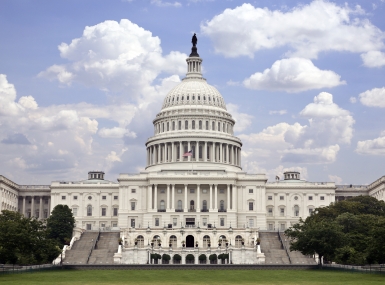America’s Counties and Middle-Income Taxpayers Need SALT
Author

Hon. Roy Charles Brooks
Upcoming Events
Related News

Counties must advocate to preserve SALT deduction, protect against double taxation
As county officials, we are all too familiar with efforts to limit our local control. This is especially true with state limitations on county property tax assessments and amounts. We are now facing a similar confrontation at the federal level – one that we would rather not have to fight, but one that is incredibly important.
Learn More
As you have likely seen over the past few weeks, discussions in Washington, D.C. have shifted to tax reform. Current proposals have included eliminating or scaling back the federal deductibility of state and local taxes (SALT), which would undermine local decision-making authority and our ability to deliver services to residents.
The SALT deduction is claimed by 44 million households in all 50 states, in both Republican and Democratic congressional districts. It helps to support vital public services and investments essential to every resident, including infrastructure, public safety and education.
The concept of deducting your state and local taxes from your federal taxes dates back to Alexander Hamilton’s Federalist Papers, was advanced as part of the first national income tax during the Civil War and was codified in the original federal tax code of 1913. In fact, it was one of six federal deductions when the code was only three pages long. There are three simple reasons why SALT has been enshrined in our national tax policy for so many years:
State and local taxes are mandatory payments by our residents and should not be double taxed.
Our founders, including Hamilton, feared that the federal government would seek a monopoly on taxation at the expense of state and local governments.
States and local governments are uniquely positioned to address state and local issues with state and local resources.
Eliminating SALT to pay for tax reform efforts would reverse more than 150 years of national tax policy and constitute a $1.3 trillion federal revenue grab. That’s $1.3 trillion less in our residents’ pockets to support local services our communities need.
Additionally, according to the National Association of Realtors, eliminating SALT would increase federal taxes on middle-class homeowners by an average of $815, while gutting federal homeownership incentives. Even if the standard deduction is doubled, middle-class households would see an increased tax bill because the plan consolidates deductions for dependents and related items.
While we share the tax reform goals of boosting the national economy and reducing federal deficits, the reality of the blueprint doesn’t match the rhetoric.
To protect our communities’ priorities and make sure taxpayers are not double-taxed, we must continue to advocate to preserve the SALT deduction. Americans should not be taxed on their taxes. It isn’t right, and it is detrimental to middle-class residents and counties across the country.
With two dozen nonpartisan state and local government groups, public safety organizations, the real estate and education communities and others, NACo co-founded Americans Against Double Taxation to advocate for the full preservation of SALT.
Attachments
Related News

U.S. Congress passes reconciliation bill: What it means for counties
On July 3, the U.S. Congress passed sweeping budget reconciliation legislation.

U.S. Senate passes amended reconciliation bill text: What it means for counties
On July 1, the U.S. Senate narrowly passed their version of sweeping budget reconciliation legislation.

County Leaders Visit Washington to Share Local Perspective on Budget Reconciliation
Elected officials from five states sound alarm about administrative and funding changes to SNAP and Medicaid.